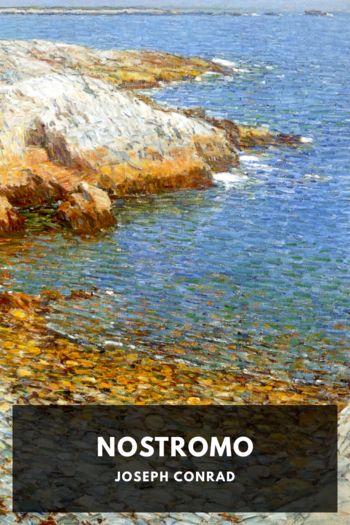Whoever Fears the Sea by Justin Fox (essential reading .txt) 📗

- Author: Justin Fox
Book online «Whoever Fears the Sea by Justin Fox (essential reading .txt) 📗». Author Justin Fox
‘Gosh,’ said Paul, ‘I’d love to race a dhow one day.’
‘If you want to take part in a regatta, you must come on the first day of January, or the fifteenth of August, or during our Maulidi festival. These are the three big races. The one in August, that’s a good one for foreigners to join in. Next year, you come?’
‘Maybe. It would be fantastic.’ What would Paul give to leave a sign Gone dhow racing hanging on his front door?
After clearing the roadstead, Jabari asked whether he’d mind if they smoked a joint. Paul had no problem with it. A huge bhangy was rolled, lit and passed among the crew. He took a drag and handed it on. Soon, Angalia was zigzagging all over the channel, with the sail being left to flog for long periods. Paul asked Jabari if he could take the helm. Before long, his shipmates were reduced to giggling wrecks, seemingly incapable of even the most basic sail adjustments. For Paul, who’d abstained from further drags, it was a glorious two hours of sailing. The mashua was small enough and the wind light enough for it to be handled like a dinghy. He had the mainsheet in one hand and the tiller in the other as he weaved her between the sandbanks.
One deckhand used a petrol canister as a drum and sang the same rollicking song over and over, the crew joining in for the chorus. In the old days, he had read, there’d be a whole orchestra of drums, cymbals, trumpets and antelope-horn flutes on a jahazi. When entering port or setting sail, dhows would fill the roadsteads of East Africa with the sound of music. A large fleet leaving on an evening ebb would have been unimaginably evocative, thought Paul as the stoned crew tried to chase an ebbing tune that forever eluded them.
The channel narrowed. Gusts stole over the treetops, leaving no tell-tale cat’s paws on the water, and were upon them before Paul had a chance to make adjustments. Fortunately they were light. By now the sailors had dozed off on the thwarts and ballast bags. Angalia squeezed past an overloaded motor dhow, weighed down to the gunnels, chugging back from the mainland with produce. Paul waved and dozens of hands waved back. Then he crept up behind a hori making for Matondoni and sailed past under its lee. The other skipper smiled a toothless grin and held up a fish. ‘No thanks!’ shouted Paul. The man dropped the fish and freed off, pumping his sail, trying to catch up. No Swahili sailor appreciates another slipping through his lee.
Paul roused the crew as Angalia neared the village. Docking was a shambles, with lines landing in the water, stifled laughter and a loud bump as they collided with an anchored dhow. A stout young man with a moth-eaten beard appeared above them on the jetty. ‘Jambo, Mister, my name is Jeremy!’ he called. ‘Let me welcome you to the humble town of Matondoni.’
Paul shook hands with him at the top of the steps.
‘For a very small fee, Mister, I —’
‘Sawa, okay, Jeremy. I know the story,’ said Paul. ‘You’re hired. I’d like to see the boat-building yard.’
‘Certainly, come this way, I will show you everything,’ said Jeremy, drawing ahead with a waddling gait.
They tramped through a pretty village and down to an inlet that flooded at high tide. Palm trees lined the water’s edge, their fronds decorated with weaver nests that dangled like faux coconuts. In one enclosure, they found two men busy repairing a hori, caulking the seams and replacing rusty nails.
‘We have been a boat-making village for more than six hundred years,’ said Jeremy proudly. ‘The most famous jahazi ever built came from our yard. It was the year 1967.’ The smooth-talking Jeremy had his tour-guide sound bites down pat. Paul made a note to interview him on camera. ‘The dhow was called Hodi and it was supposed to sail all the way to Canada for the World Fair in Montreal. But the Suez Canal war came and Hodi never even got to the Atlantic. She was sold to a sheik in the Persian Gulf.’
Jeremy suggested they pay a visit to the misumari fundi. The pair came to a hut and stood in a doorway watching the elderly man bent to his work. He wore only a kikoi and kofia and was banging ships’ nails into shape over a fire. ‘This is a very important job, let us not disturb him,’ said Jeremy in a hushed voice. ‘The misumari fundi is a highly respected man. Without nails, you have no dhow. If the nails fail, you sink.’
‘What about mtepes?’ asked Paul as they walked on.
‘They did not need nails, but I have never seen one. Those dhows disappeared long before I was born.’
They reached a boatyard where Jeremy’s uncle was shipwright. Badru was busy with the construction of a mashua under a makuti-roofed ship loft. The fundi shook hands with Paul, then went back to work. He chatted to them, hardly glancing at the chisel as it sliced into wood, the unwatched hammer rising and falling with unfailing accuracy.
Paul knew that ship fundis were important figures in any Swahili community. Their mastery was thought to be coupled with piety, which lent the men even greater stature. Although each fundi employed many workers and apprentices, the selection of wood and most of the calculating and measuring was





Comments (0)